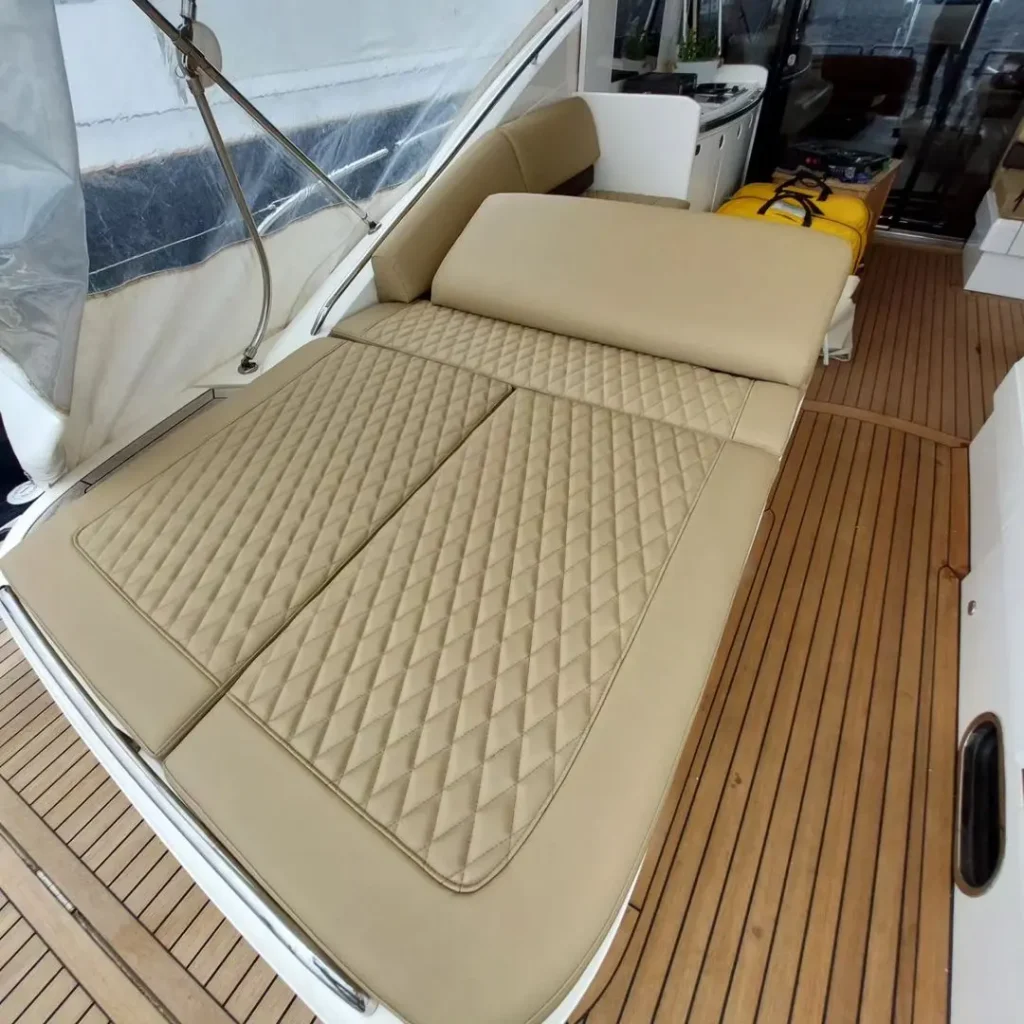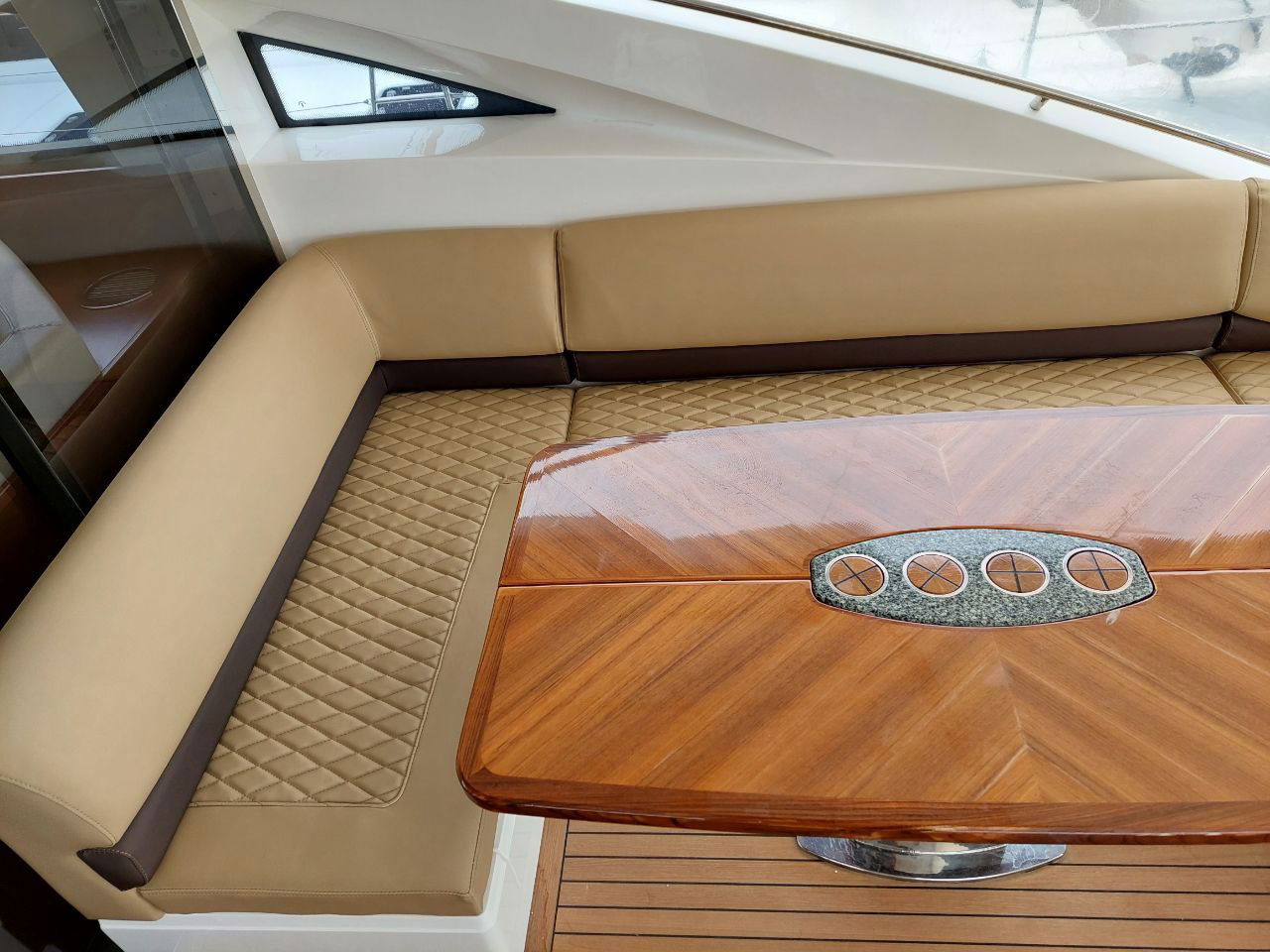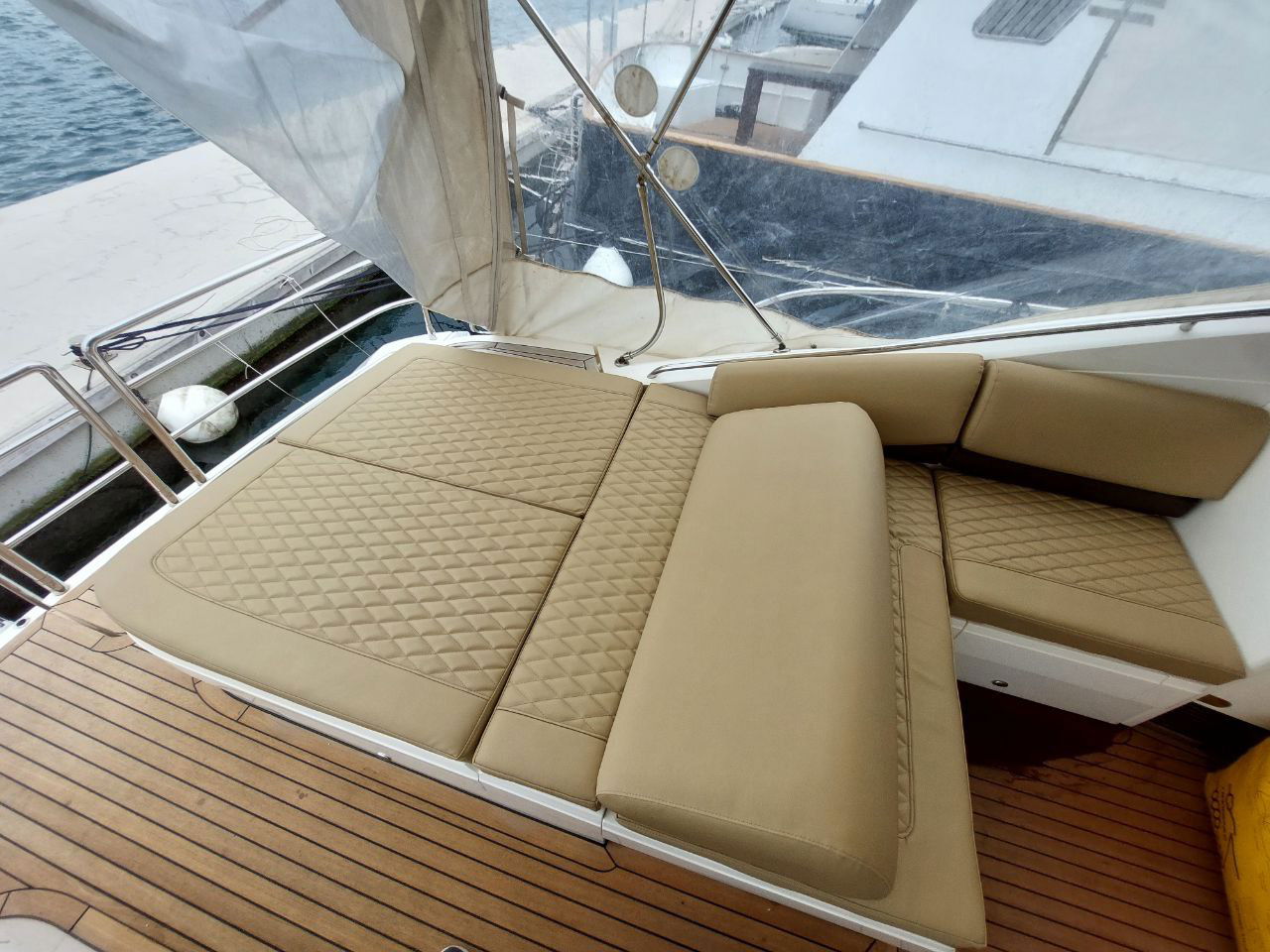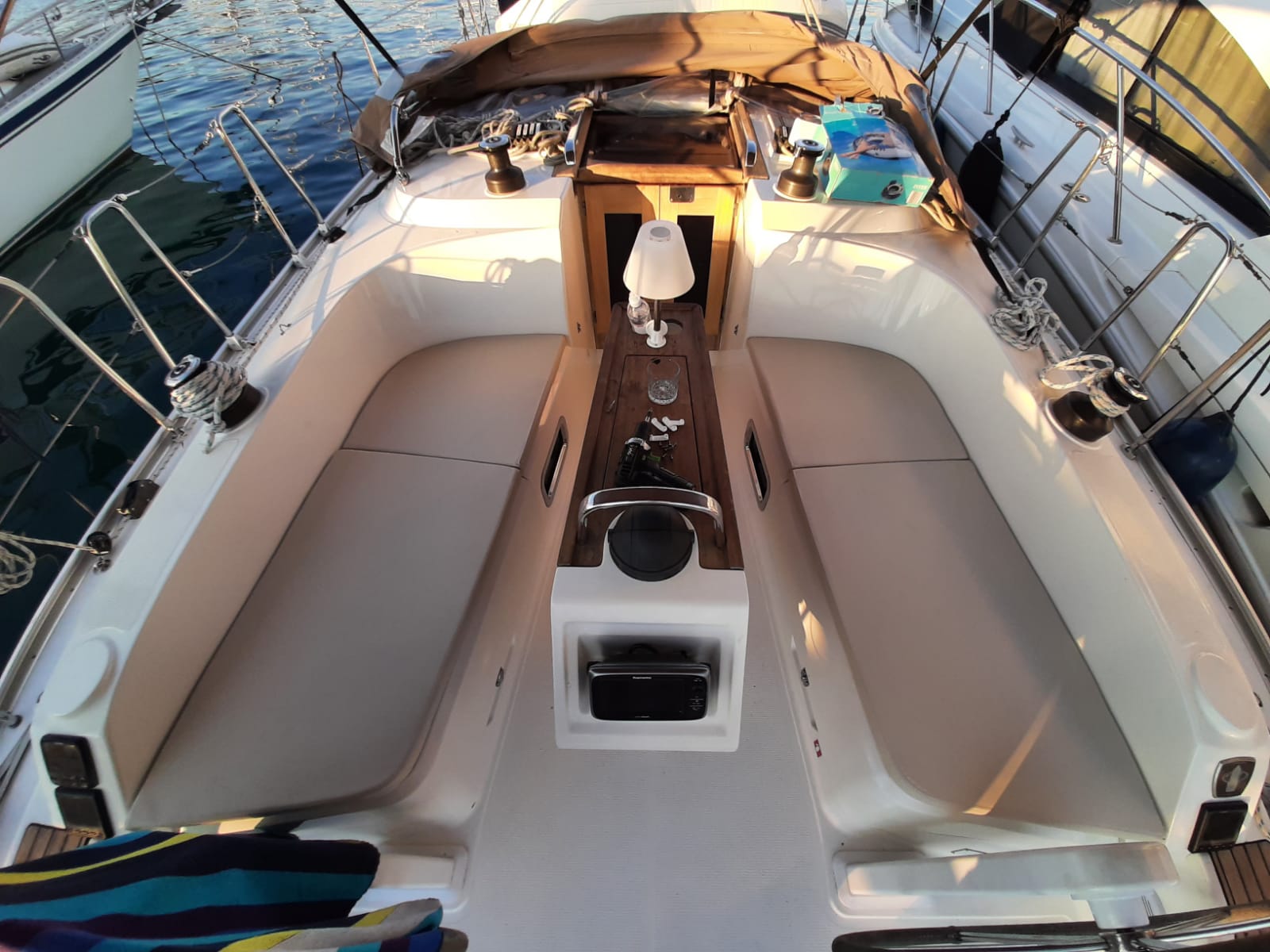Top 5 signs it’s time to repair your boat upholstery
Fresh, well-kept upholstery doesn’t just look good—it protects your crew, improves comfort, and sustains resale value.
Here are the clearest indicators that your boat’s cushions and panels are due for professional attention, plus what to do about each.
1) Cracks, splits, or stiffening surfaces
What you see:
Hairline cracks, hard or brittle vinyl, flaking top-coat.
Why it matters:
UV and salt degrade coatings and plasticizers, letting moisture into the foam and accelerating failure.
Action:
Repair or re-skin before cracks propagate; consider replacing with marine-grade vinyl rated for UV and cold-crack resistance.

2) Heavy fading, yellowing, or “chalking”
What you see:
Color loss, powdery residue, uneven panels where sun exposure differs.
Why it matters:
The UV barrier is spent; seams and threads are next to go.
Action:
Re-cover with solution-dyed acrylics or premium marine vinyls that offer long-term colorfastness and heat reflection.
3) Mildew, odors, or persistent stains
What you see/smell:
Black spotting, musty odor that returns after cleaning.
Why it matters: Moisture is trapped; foam may be contaminated or waterlogged.
Action:
Deep clean and re-foam if necessary using reticulated (open-cell) or closed-cell foams with antimicrobial properties; add breathable underlays and ventilation paths.

4) Seam failure and thread rot
What you see:
Popped stitches, lifting piping, frayed seams on high-load edges.
Why it matters:
UV-burnt thread and stressed stitch lines compromise structure; water ingress follows.
Action:
Restitch with UV-stable PTFE or bonded polyester thread, reinforce high-wear zones, and review patterning to redistribute loads.

5) Foam fatigue: Bottoming out or “memory dents”
What you feel:
Cushions compress to the board; slow rebound; sore backs after a passage.
Why it matters:
Compressed or waterlogged foam loses support and promotes mold.
Action:
Rebuild with high-resilience (HR) foam inside cabins and closed-cell or reticulated foams in wet zones; tune densities by use (berths vs. helm seats).

The Rempar upholstery advantage
At Rempar Sailing d.o.o., we rebuild and refresh interiors and cockpits for real Adriatic conditions:
- On-board measurement and CAD patterning
- Marine-grade vinyls and textiles, PTFE thread, and corrosion-resistant hardware
- Foam packages tuned to zone and use (berth, saloon, helm, cockpit)
- Precise fit, clean installs, and a clear maintenance guide
Outcome:
a cleaner, safer, more comfortable boat that looks new and lasts longer.


